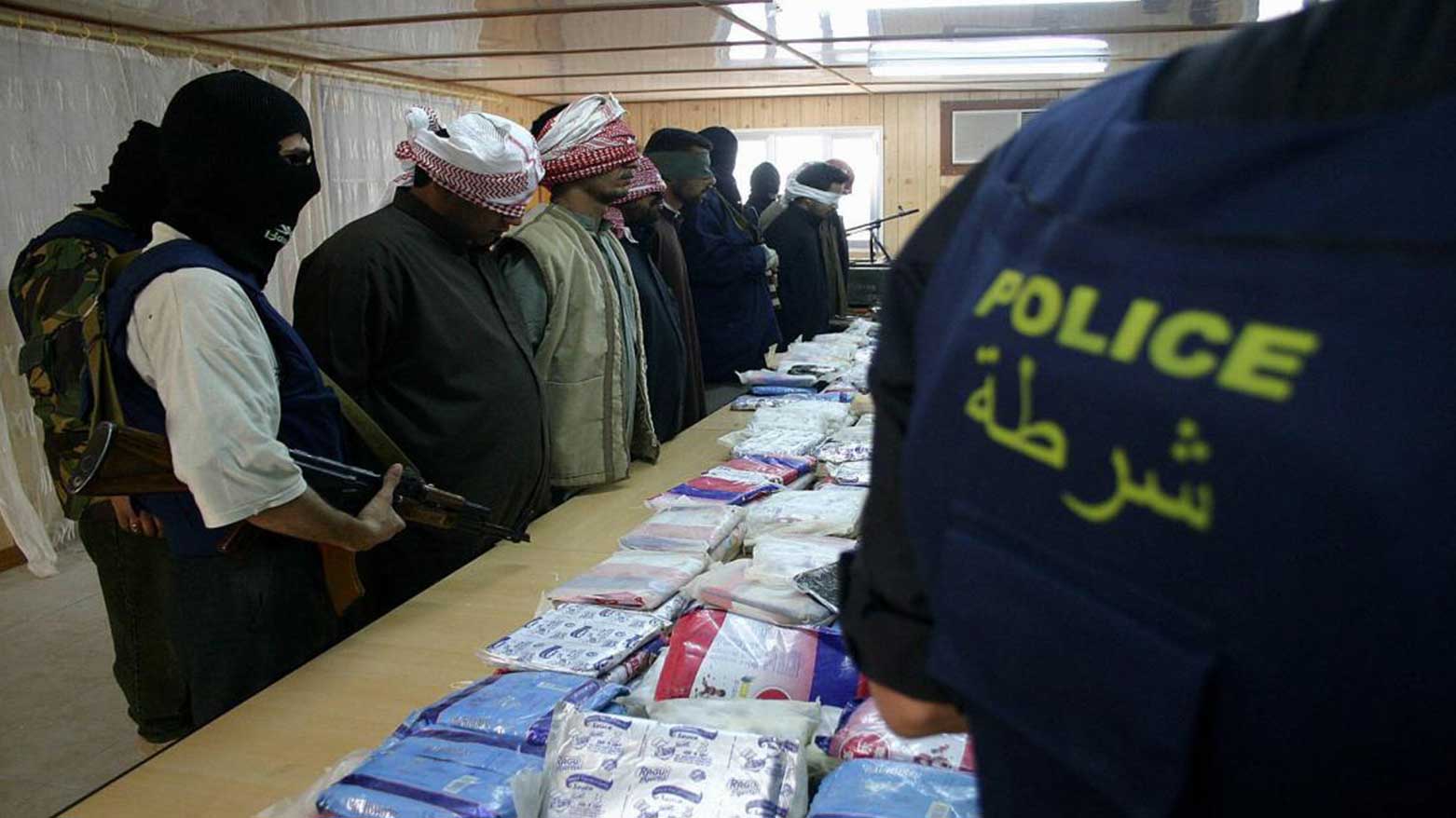First Quarter of 2025: Iraq Confiscates 2+ Tons of Narcotics, Arrests More Than 3,000
Out of over 3,000 arrested, 973 have been sentenced; two suspects killed and 13 injured in clashes with security forces during nationwide anti-drug operations.

ERBIL (Kurdistan24) — Iraq’s General Directorate for Narcotics and Psychotropic Substances announced on Sunday that more than 3,000 individuals were arrested during the first quarter of the year as part of the country’s intensifying campaign against drug trafficking and abuse.
In a statement released to the public, the Directorate—which operates under Iraq’s Ministry of Interior—revealed that 3,006 suspects were detained between January and March 2025. Of those, 973 individuals have already been sentenced. In addition, authorities seized 2 tons and 166 kilograms of various types of narcotic substances during the same period.
The Directorate emphasized the vital role played by its Special Investigation Unit, which has been instrumental in intercepting narcotics and curbing their spread. Notably, the Rassafa Central Investigative Court, which is dedicated to drug-related cases, seized an additional 1 ton and 538 kilograms of illicit substances during this time.
The crackdown has not been without consequence. The Directorate confirmed that two suspects were killed, and 13 others sustained injuries during confrontations with law enforcement units.
The Growing Drug Crisis in Iraq: A Deeper Look
In recent years, Iraq has faced a mounting drug crisis, transitioning from a transit corridor to a key consumption and distribution hub. While historically Iraq was not known for high levels of drug abuse, the situation has dramatically shifted post-2003 due to several compounding factors.
1: Geopolitical Instability and Porous Borders
Years of conflict, political instability, and weakened border control have allowed drug smuggling routes—especially from neighboring Iran, Syria, and Turkey—to expand. The porous borders in the south and west of the country, particularly around Basra and Anbar, have become primary entry points for narcotics, especially methamphetamines and Captagon pills.
2: Rise of Synthetic Drugs
Unlike the past where cannabis and opiates were more common, today’s drug landscape is dominated by synthetic stimulants like crystal meth and Captagon. These drugs are cheap, addictive, and relatively easy to produce or smuggle, making them widespread, especially among vulnerable youth and unemployed populations.
3: Youth Vulnerability and Socioeconomic Factors
Iraq's young population is particularly at risk. High youth unemployment, lack of recreational and mental health resources, and ongoing post-war trauma have created fertile ground for addiction. Drug use is increasingly reported in urban centers like Baghdad, Basra, and Mosul.
4: Law Enforcement and Legal Framework
In response, the Iraqi government has stepped up its legal and security measures. The Anti-Narcotics Directorate, under the Ministry of Interior, now leads frequent crackdowns in collaboration with judiciary bodies like the Rassafa Investigative Court. However, the legal system still faces challenges in balancing punitive measures with rehabilitation options. Many activists call for better addiction treatment centers and education campaigns rather than solely relying on arrests.
5: Regional and International Cooperation
There are growing calls for Iraq to coordinate more closely with regional neighbors and international organizations to strengthen border security, intelligence sharing, and anti-smuggling operations. UN agencies and NGOs have also been involved in raising awareness and developing rehabilitation initiatives.
6: Public Awareness and Stigma
Despite increasing cases, drug addiction remains a highly stigmatized issue in Iraqi society, often seen as a moral failing rather than a public health concern. This stigma can prevent individuals from seeking help and limit family and community-level support.
As Iraq continues to grapple with the escalating drug crisis, authorities stress the need for sustained efforts in enforcement, prevention, and rehabilitation. Combating narcotics, they say, requires not only strong legal action but also community engagement and long-term public health solutions.